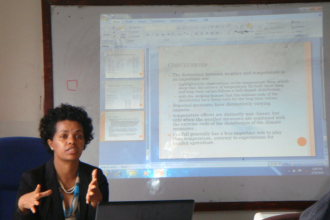
Workshop Conducted on Irrigation Water Pricing and Institutional Sustainability of Irrigation Sector in Ethiopia
A workshop on ‘Irrigation water pricing and institutional sustainability of irrigation sector in Ethiopia’ was conducted on May 2, 2014 at Harmony Hotel, Addis Ababa, Ethiopia. The workshop was co…
